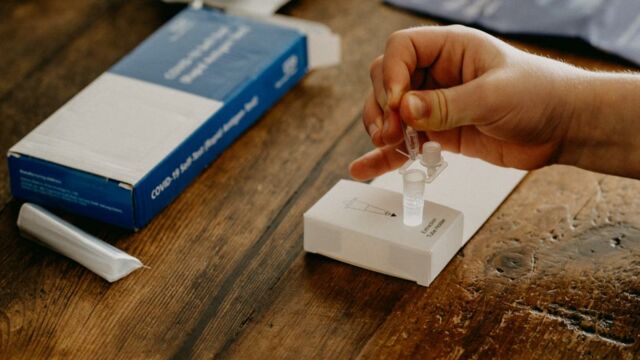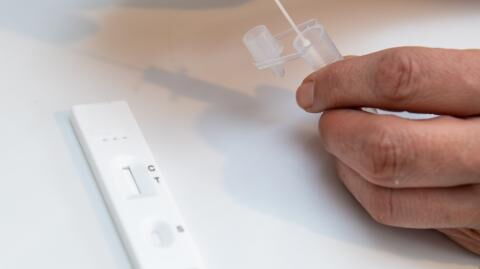In what is now considered the most mutated version of the coronavirus ever observed, a lot remains to be fully understood about the severity of the altered virus. Not only are scientists unsure whether current vaccines are protecting us against Omicron, but they are also uncertain if available technology to detect the presence of the virus is efficient at all.
Discover our latest podcast
More specifically, experts are trying to figure out if the cheaper and more accessible testing service provided by lateral flow devices (LFT) should still be used.
Scepticism towards LFTs
Opinions have been divided, with some vehemently believing a sceptic eye should be fixed on lateral flow testing until the virus is better understood. Rupert Beale, who runs the Cell Biology of Infection lab at the Francis Crick Institute, explained that it was much too early in the researching process of the virus to know for certain just how efficient LFTs are against Omicron. In a statement made on Twitter, he wrote:
[It is] possible that one or more of the commercial lateral flow devices might lose sensitivity. We cannot assume lateral flow tests maintain sensitivity against Omicron—might depend on test, might also depend on intra-variant variation (and sure, they also could be all OK, we don't know).
More ammunition to protect against Omicron
However, others believe that though we might not have the full picture painted, LFTs are still better ammunition to protect us against the virus than to discard them completely. Other scientists who have conducted their own research have found them to be effective in detecting the mutated virus.
Sandra Ciesek, a virologist at the Johann Wolfgang Goethe-Universität in Germany, used LFTs from three different NHS suppliers—Roche, Siemens and Flowflex—and successfully detected the variant.
As it stands currently, Scotland is taking advantage of their availability to take control of the situation as more social gatherings take place in light of the forthcoming holidays.















